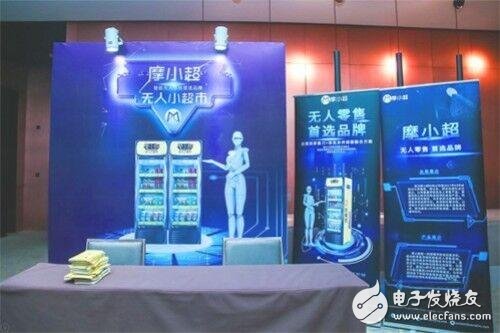The new retail concept has been changing from the present to the present, but its core is still the intelligent vending system based on artificial intelligence, big data, cloud computing and other technologies. Mo Xiaochao, as a technology company providing unmanned retail solutions, succeeded in creating the first unmanned intelligent container with gravity and visual multi-sensor fusion in China after iterating multiple versions internally. The debut made a hot discussion among the industry. It is a revolutionary and comfortable shopping experience for many users, just like taking out items from their own refrigerators. Not only that, but the sales of multi-category goods by Mo Xiaochao and the unmanned intelligent vending cabinets have made the practitioners in this field marvel. The reason why unmanned intelligent containers can achieve such a simple, fast and efficient shopping experience is inseparable from the support of core sensor identification technology. Currently, the mainstream identification technologies in the industry are as follows: RFID is an electronic tag attached to each item. When a user purchases a product, the sensor identifies the electronic tag on the item for settlement. It is foreseeable that RFID technology based on electronic tags has a fatal flaw: when the tag is damaged or torn off by the user, the user can obtain the product for free. At the same time, the electronic labeling of each item will cost a lot of labor. Visual sensor-based visual recognition technology can identify actions to take or put back items. The drawback of this technology is that the user's calculation speed of the recognition system is obviously slower when shopping, and there may even be errors. At the same time, this technology has strict restrictions on the size, placement, height and illumination of the goods, and the types of products supported are also limited. Gravity sensor technology senses the change in weight on the shelf through the sensor to detect the behavior of the item being removed or replaced. Due to the high sensitivity of the technology to the sensor, the device needs frequent calibration and maintenance; in the face of similar weight products, accurate identification cannot be achieved. It can be found that the single technology solution currently on the market cannot meet the retailer's demand for new retail. As the first multi-sensor fusion unmanned intelligent vending cabinet, Mo Xiaochao has shown an irreplaceable advantage in recognition accuracy, commodity category support, and visual learning algorithms. Gravity + visual AI recognition technology, perfect solution to the technical defects of a single sensor solution, the product recognition accuracy rate is as high as 99.99%. Not only that, relying on strong independent research and development strength, Mo Xiaochao has been leading the industry for 6-8 months in the field of multi-sensor fusion, and has become the first choice of some merchants. Mo Xiaochao has achieved technological leadership in the field of unmanned intelligent retail, and it is inseparable from the strong R&D team behind it. The R&D team led by Wuhan University professors, doctoral students and graduate students is one of the first companies to develop an unmanned retail project. The core technology is far ahead of other products. Mo Xiaochao has obtained multiple rounds of financing and has a number of invention patents and software copyrights. The company is committed to solving the last 100 meters of retail problems through new technologies, speeding up the era of unmanned supermarkets, and reducing costs to one-fifth of traditional retail, doing offline Taobao. The development of technology will inevitably lead to innovation in the new retail industry. In the future, more and more commodity categories such as snacks, fresh food, office supplies, daily necessities, and pharmaceuticals can rely on the development of unmanned intelligent containers to reach more user groups. Moreover, compared with traditional retail, the reduction of operating costs will inevitably lead to new retail sales that have not been fully developed. And Mo Xiaochao will take technology as the core, strengthen the supply of software and hardware, and ensure the stability of products to meet the needs of the market. This year, the new retail industry once again showed a booming growth of everything. Whoever can get the top spot, core technology will become a decisive factor. Mo Xiaochao, as the first unmanned vault in China with gravity + visual multi-sensor integration, we have reason to believe that it has taken the lead in the field of unmanned intelligent retail. LIFEPO4 Battery For Home Energy Storage Jiangsu Zhitai New Energy Technology Co.,Ltd , https://www.zhitainewenergy.com
Recommend 54V (53.5V – 54.5V) for equation charge
(≤95%R.H.)
-20~65℃ discharge
S/N
Project
General Parameter
1
Number of series
15S
2
Rated voltage
48V
3
End of discharge voltage
40V
4
Charging voltage
Recommend 51V (50.5V – 51.5V) for floating charge
5
Continuous charge and discharge curren
≤100A
6
Internal resistance (battery pack)
≤100mΩ
7
Self-discharge rate
≤2%/month
8
range of working temperature
0~65℃ charge
9
Storage temperature range(≤95%R.H.)
-40~70℃
10
Positive and negative lead way
Fence Terminal 2P*2
11
Display screen
LED display, four physical buttons
12
Protective function
Overcharge, over discharge, short circuit, overload, over temperature, etc.
13
certificate
MSDS,ISO9001,CE,UN38.3,ROSH
May 23, 2023